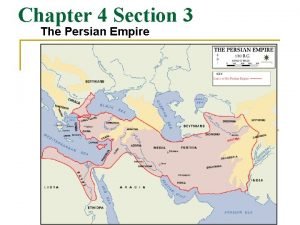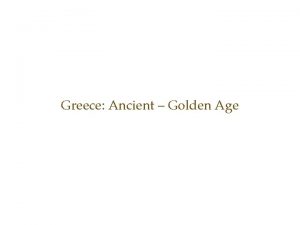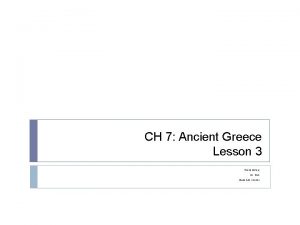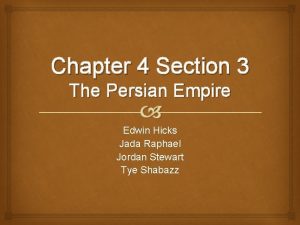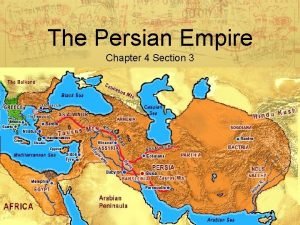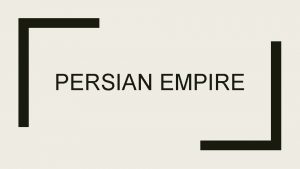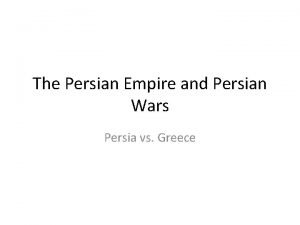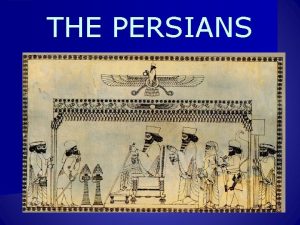Classical Persia The Persian Empire The Persians developed






- Slides: 6

Classical Persia

The Persian Empire • The Persians developed different political and cultural values than the Greeks. • They influenced many historical currents, including modern Iran. • About 550 B. C. E. , Cyrus the Great established a Persian empire as successor to the Mesopotamian states of the past. • The Persians allowed traditional cultures to continue, and advanced iron technology.

Persian Perspective in the Middle East • The religious leader Zoroaster revised Sumerian beliefs to produce a religion emphasizing the importance of choosing between the divine forces of good and evil; a last judgment decided the eternal fate of each person. • Later Persian rulers expanded the empire and provided much of the Middle East with a long period of peace and prosperity. • Although ultimately conquered by Alexander, Persian language and culture remained influential.

Politics in Classical Greece • The Greeks highly valued political activity, contributing greatly to the later developments of democratic cultures. • Although Greek communities had varied political forms, aristocratic rule was prevalent. • A general revival of eastern Mediterranean trade spurred the growth of Greek city-states and challenged existing political structures.

Greek Literary Traditions • The Greeks during the 8 th century B. C. E. simplified the Phoenician alphabet to write their own language. • The spread of literacy enhanced commercial exchanges and cultural life. • The Iliad and the Odyssey were written down and provided a mythic foundation for Hellenic culture.

Greek Arts • In architecture, the Greeks developed distinctive forms based upon an oblong building framed by pillars. • Sculpture moved to a more realistic portrayal of the human body, while decorated pottery depicted scenes of human activity.
